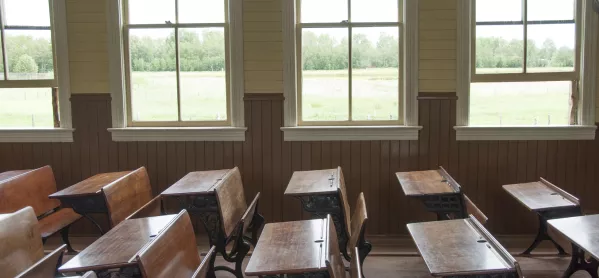Rural schools are facing a perfect storm of problems as low pupil numbers, high transport costs and “rural poverty” put heads under increasing pressure, new research has found.
Two-thirds (67 per cent) of rural school headteachers surveyed by The Key said that their small class-sizes meant they received little government funding to run their schools.
More than four in 10 reported that their school is undersubscribed, giving parents with “unreasonable expectations” significant power over how things are run, while 45 per cent said all classes in their school were mixed age.
“There is often a need to walk a diplomatic tightrope with parents,” said one rural headteacher.
“Many schools are not at capacity, so if a relationship with a family breaks down, they often just move their children elsewhere. Approximately 30 per cent of my pupils in Years 1 to 6 are mid-year admissions.”
Rural headteachers collectively run about 5,000 schools in England - more than 20 per cent of schools in the country, yet the problems they face are often overlooked.
A breakdown of this year’s GCSE results by county shows that pupils in urban areas regularly outperform their rural peers across multiple subjects.
Many heads highlighted the impact of “rural poverty”, where pupils’ families are just above the threshold for free school meals and the pupil premium, but still struggle to get by.
More than half (52 per cent) of those surveyed said that they teach children from more “poor families” than just those eligible for additional funding.
The problem is exacerbated by distance, with over a third of heads reporting their pupils travel more than 10 miles to school as their families are priced out by retirees and second-homers.
Many of the children coming from further away rely on taxis, meaning a lot of the local authority budget is spent on transportation costs.
“We only have 5 per cent of pupils who are eligible for free school meals, but most pupils sit just above the threshold,” said a headteacher, named as David. “Lots of families don’t quite qualify but are ‘rural poor’.”
Another, called Richard, said many of his pupils come from families of seasonal workers and are forced to live in temporary accommodation and caravans.
“People assume housing costs are expensive just in the cities, but it’s very expensive to live in an idyllic location,” added Elaine, who also leads a countryside-based school.
Rural schools have been hit particularly hard by a squeeze on school budgets, which has seen per pupil funding fall 8 per cent since 2010.
Last year the government increased the amount of money targeted at rural schools following fears that a planned funding overhaul threatened the survival of more than 1,000 of them.
In April, members of the NEU called for rural schools to be given “protected status”, which recognises “their significance for the survival of their communities”.
For rural heads, keeping things running against the odds now means taking on multiple roles.
“I’m the social worker - split-up parents contacting us to talk about the other parent can take up an hour of my morning,” said David.
“I’m on the roof getting down a shoe. I’m a taxi service - I drive the children to sports events. I’m also the dinner man. Until recently I was the cleaner one day a week.”
Another head, called Tim, added: “I’ve had to unblock drains, grit the playground. I do admin stuff like phoning supply agencies.
“I have to drive over to the kids’ houses to pick up things they’ve forgotten. I jump in to teach classes when someone is sick. I serve the dinner.”





